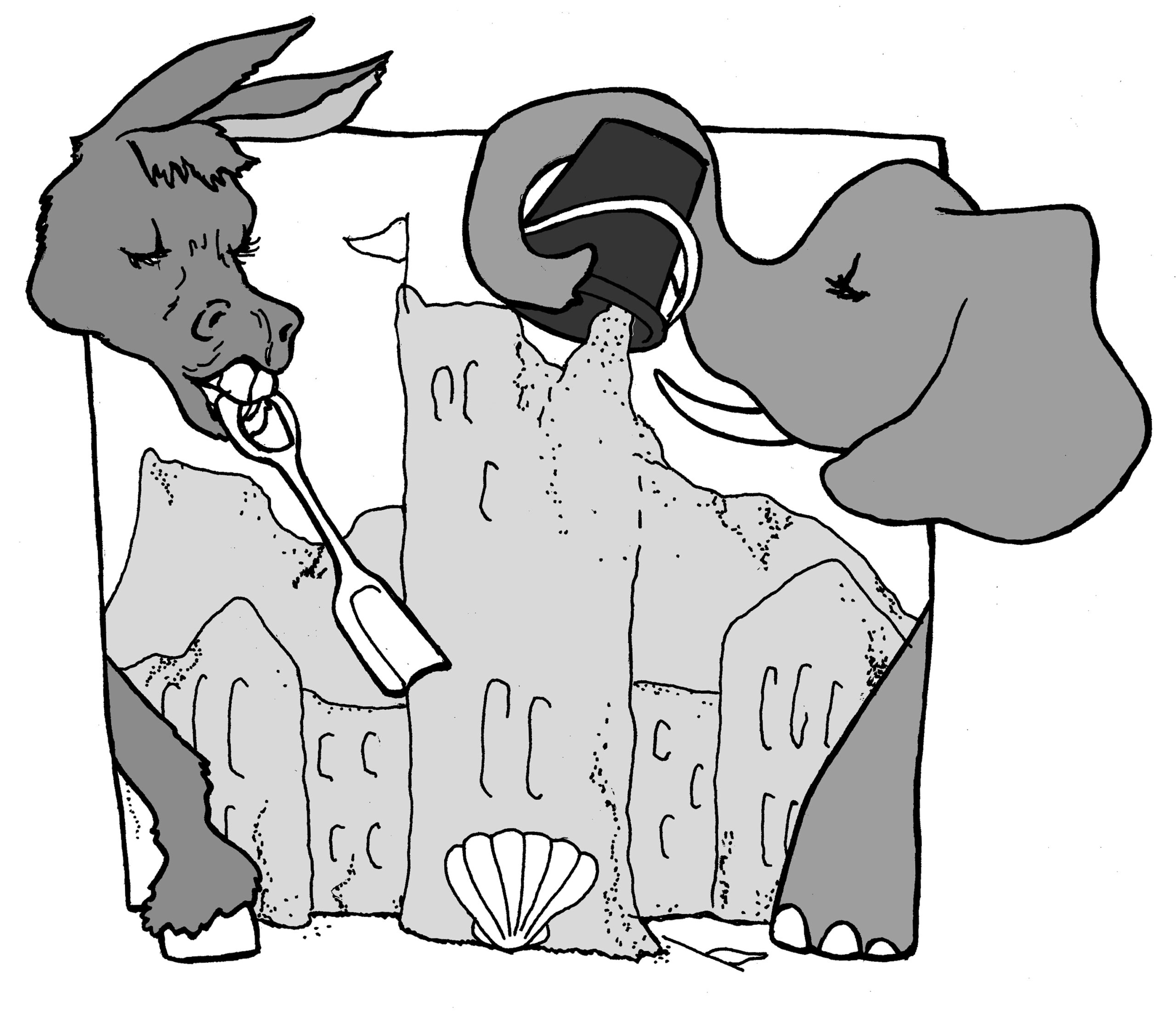Political diversity does not equate to intellectual diversity in College hires
October 13, 2017
 This
piece represents the opinion of the author
.
This
piece represents the opinion of the author
.
Frank Bruni and Arthur Brooks see eye to eye on a lot of things, despite what the table tents in Moulton might have you think. One of those things, according to last Monday’s talk, is that American higher education suffers from a fundamental lack of ideological diversity. The solution to this, they suggested, is to make a concerted effort to hire faculty with a wide range of viewpoints—although, reading between the lines, a “wide range” essentially means hiring more conservative faculty.
This lack of ideological diversity is a detriment to our educations, they argued. Brooks compared ideological homogeneity to the conditions that give rise to peanut allergies. Sterility of the environment causes fragility of the body. “I want to make you strong,” he repeated.
I agree that my education benefits when I am put into conversation with people and ideas that I disagree with. I agree that we will be better prepared for the world if we are challenged on our beliefs.
I challenge their assertion that intellectual sterility at Bowdoin, or at any school, will be solved by what they grudgingly termed “intellectual affirmative action.” Allowing the contours of academic discourse to be defined by the political winds of the current moment will in the end do more harm than good for the project of intellectual discovery.
The climate change “debate” is the most obvious example of discourse that could be skewed by political hiring. Skepticism about climate change originates in the political realm, not in the scientific—see the book “Merchants of Doubt” and other histories of climate change skepticism if you don’t believe me on this. But it is a real debate in our society with enormous ramifications.
Does that mean that our physics department should shape itself according to that debate? Should we hire a climate skeptic in the name of ideological diversity? Would it benefit campus to invite climate skeptics as speakers because we need to learn to engage with the other side? I’m going to guess that these suggestions make you uneasy. You should be—the entire project of science is undermined if political considerations shape the course of research and debate.
But the idea of shaping other disciplines to reflect the political discourse du jour should make you uneasy as well. I don’t want to go to a school where the history and sociology departments hire professors because they represent many sides of a political debate—I want them to be hired because they represent many sides of an academic debate.
I asked Brooks and Bruni about all of this in Thorne following the event. Each had a similar response: they didn’t want to suggest that academia should be shaped by politics. Instead, it should be more reflective of the debate between two abstractions, “conservatism” and “liberalism.”
However, to suggest that conservatism and liberalism can actually be separated from their respective political movements is misleading. Conservative is a shifting target, defined as much by contemporary political movements as by historical precedent. Do we label someone conservative because they work for a think tank that has historically been considered conservative? Or do we allow popular opinion, like that of the millions of Republican voters who identify as conservative, to define the ideology? What does “conservatism” have to say about national identity? I might guess that it said different things during Ronald “Latinos are Republicans—they just don’t know it yet” Reagan’s presidency than Donald Trump’s. That’s the point. There is no abstract conservatism that we can represent in our faculty—we can only engage with ideology as it manifests in the present, filtered through the lens of our political system.
I do think our educations are close to worthless if we are not exposed to debate. In the case of climate change, for example, I fiercely resist anyone who describes science as “settled.”
We never make progress in any field without skepticism—for almost half a century, American psychoanalysts sneered at any study of the human mind that wasn’t couched in Freudian analysis. Now, we teach about Freud in the history of psychology, while largely ignoring his actual theories about the human mind. The list continues: theories of both plate tectonics and extinction events were brushed aside for years before their eventual adoption.
This is all to say that science, and academia more broadly, do not move forward without those who are willing to push back against the orthodoxy.
But that pushback should come from within academia, not without, which is why I cringe when thinking about hiring a climate-change-denying physicist.
We should strive for ideological diversity within our departments, but that doesn’t mean that we should necessarily hire a faculty that reflects our country’s political makeup. In economics, it might mean the opposite—hiring a professor who studies non-capitalistic economic theories (think Marxism).
There are, of course, disciplines where political diversity is correlated with diversity of academic perspectives—mostly in the social sciences. But even in those disciplines, the point is not to hire conservatives. The point is to hire professors who can teach us something new. Political beliefs are important if they are instrumental to bringing a new perspective to a discipline, but political ideology should always be secondary to academic discourse. Otherwise, we risk allowing academia to be consumed in order to humor some convoluted vision of diversity.
Philip Kiefer is a member of the Class of 2018.


Comments
Before submitting a comment, please review our comment policy. Some key points from the policy: